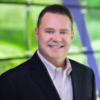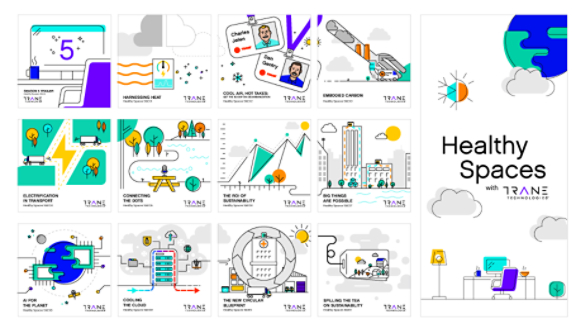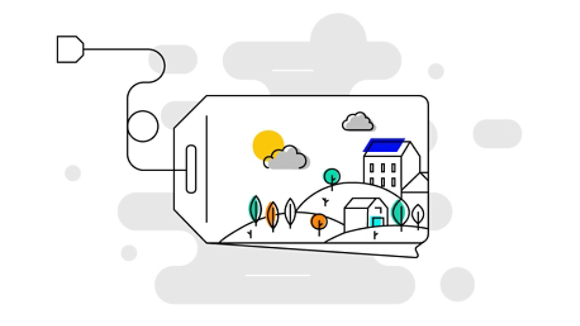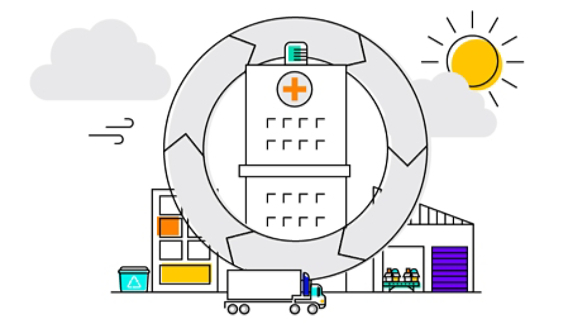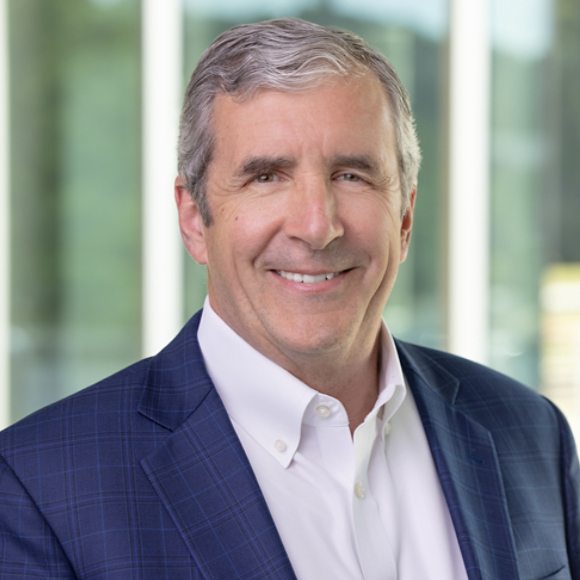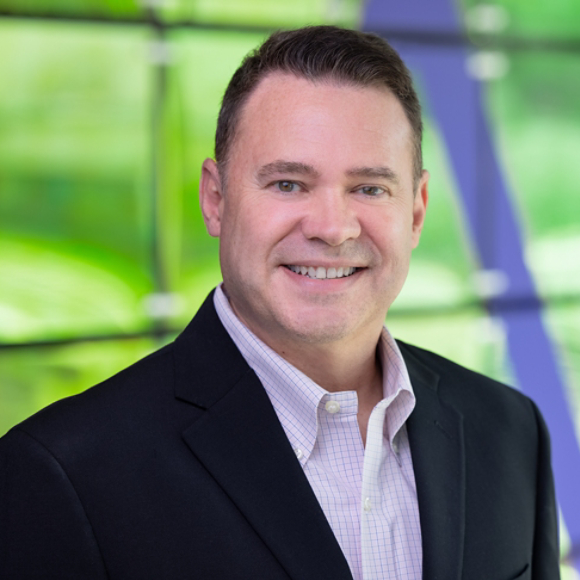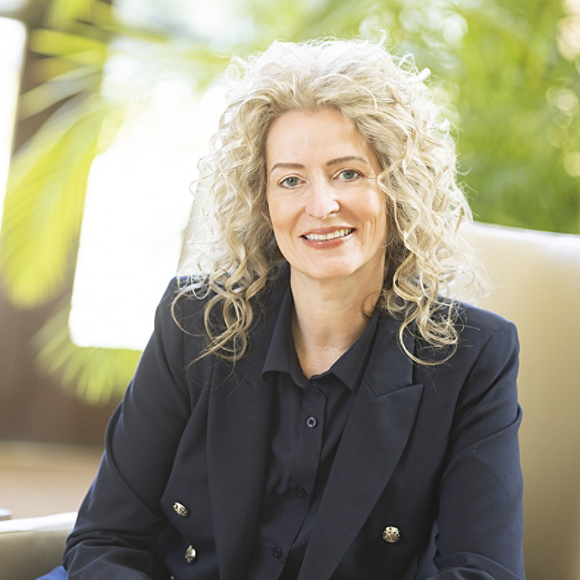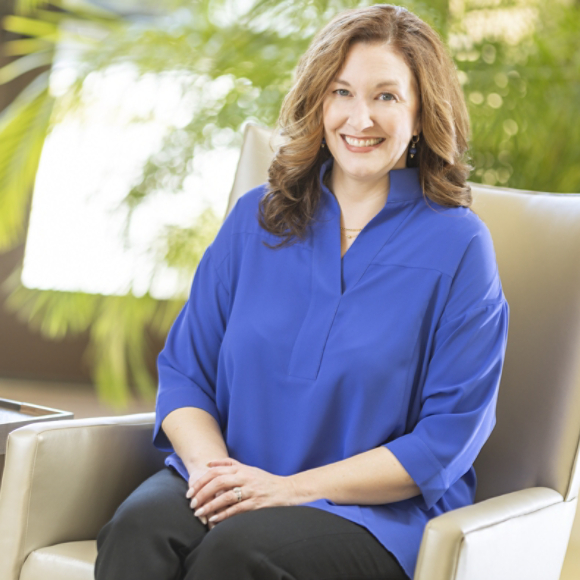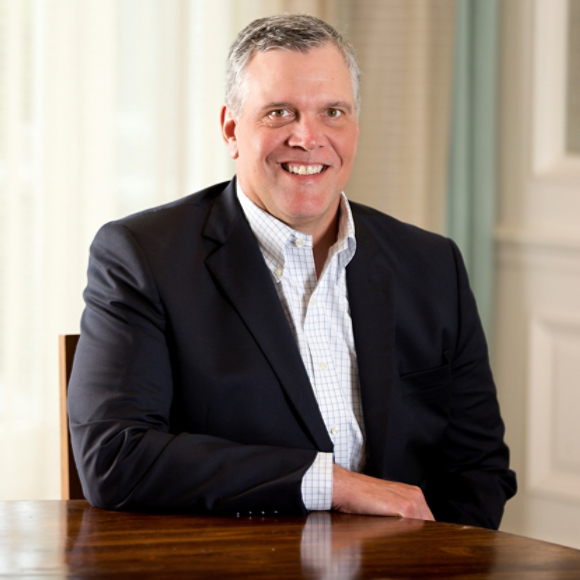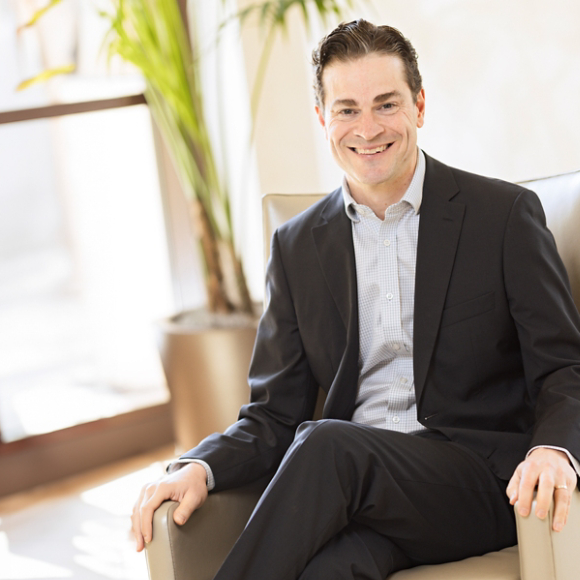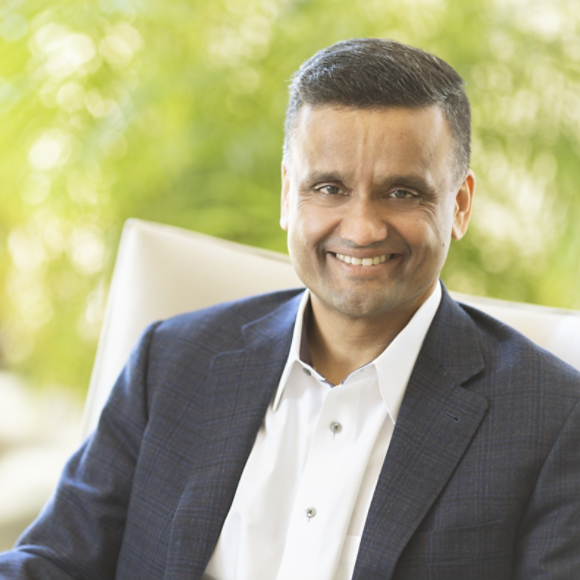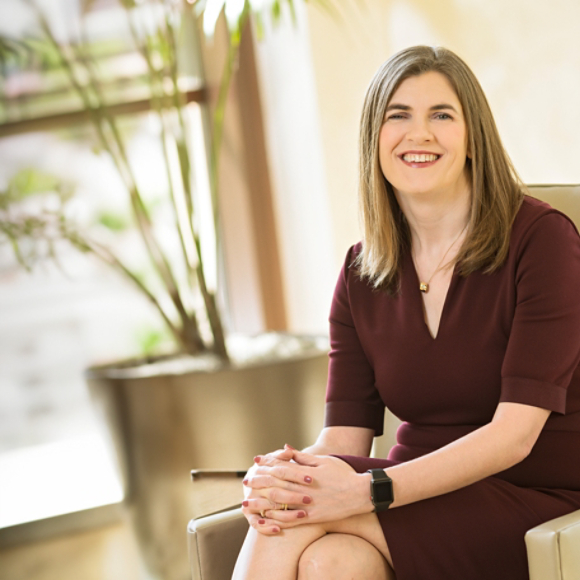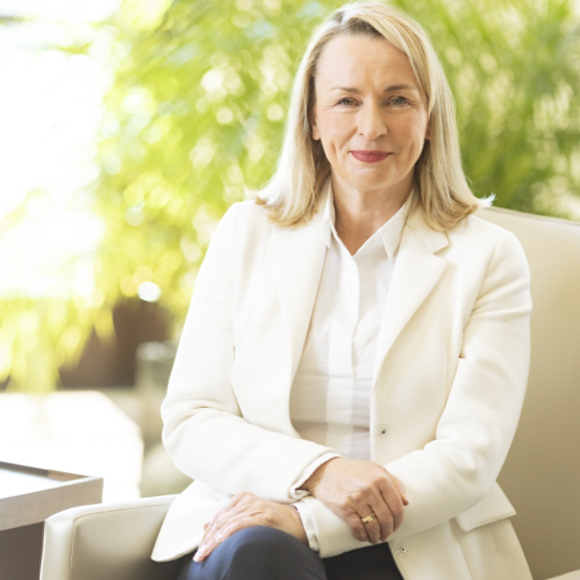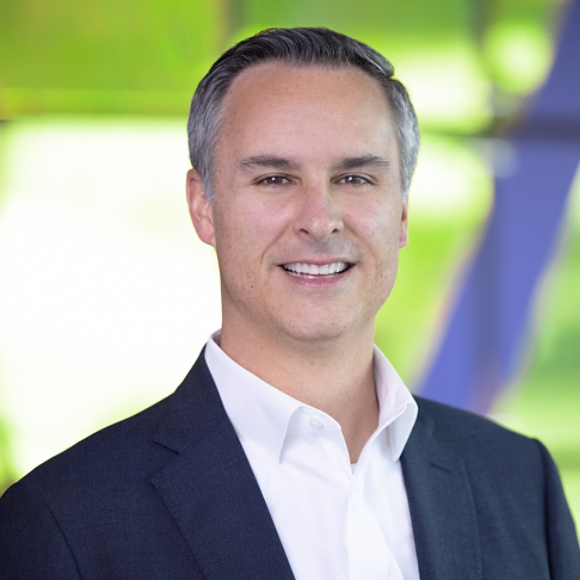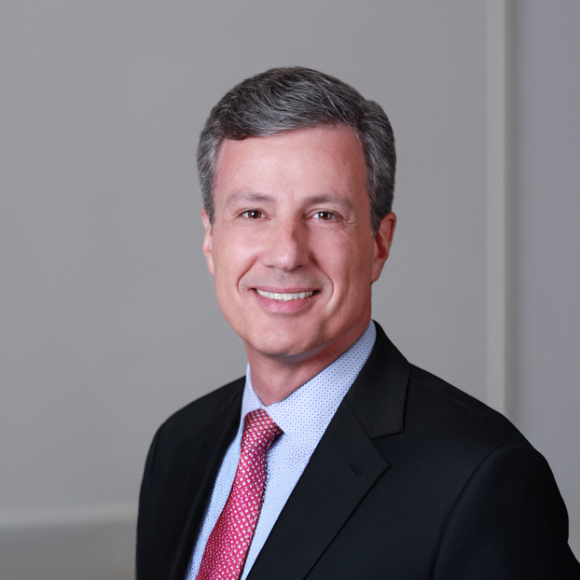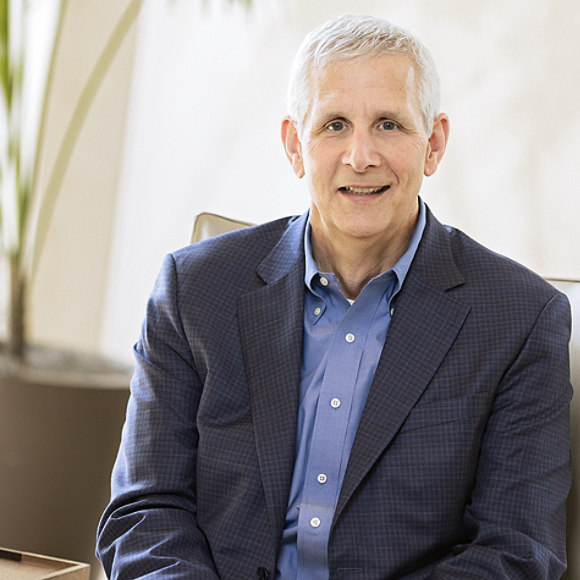July 08, 2025
Cool Air, Hot Takes – Get the Scoop on Decarbonization
Season 5, Episode 2: Welcoming Trane’s Cool Air, Hot Takes to Healthy Spaces
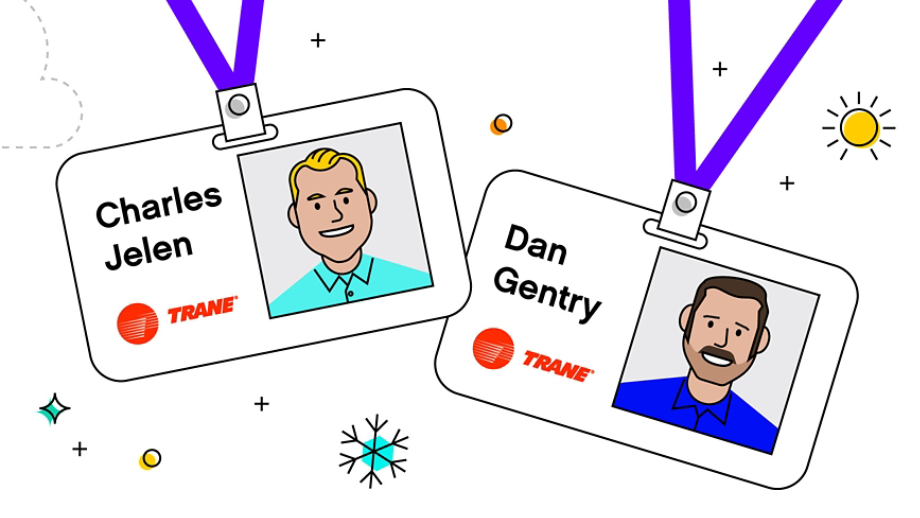
Working toward a sustainable tomorrow is a collaborative effort. We go farther when we go together. Taking a holistic approach to sustainability might mean looking at operations, supply chain and equipment efficiencies. And connecting those are the engineers who know the market, the technologies and the systems approach that can magnify impact.
Educating on decarbonization and electrification strategies
In this episode, we speak to Charles Jelen, Sales Leader for Sustainable Systems and Dan Gentry, Applications Engineer at Trane. By day, they’re out there every day talking to customers, educating, and finding solutions, but by night they are the hosts of Trane’s Cool Air, Hot Takes podcast.
We talk about decarbonization strategies, engineering the perfect solutions and projects that have inspired them, plus the hottest of hot takes.
Watch or listen to the full episode to get the scoop on decarbonization and hear about energy efficiency best practices that can help companies meet their own sustainability goals.
Watch Season 5 Episode 2: Cool Air, Hot Takes – Get the Scoop on Decarbonization
- To create a more sustainable and resilient world, we need bold ambition and decisive action. We're seeing organizations that are making impactful change, using out of the box thinking and driving innovation.
- They couldn't figure out how to fund electrification. So they came up with this concept to do. It's almost like an internal green bank or a revolving green fund where they're using the proceeds from an energy efficiency project to fund the electrification projects
- Working toward a sustainable tomorrow is a collaborative and mutual effort, we go farther when we go together. Taking a holistic approach to sustainability might mean looking at operations, supply chain and equipment efficiencies. And linking that up would be the engineers who know the market, who know the technologies and the systems approach that can magnify the impact.
- You're listening to Healthy Spaces, the podcast where experts and disruptors explore how climate, technology and innovation are transforming the spaces where we live, work, learn, and play. I'm Dominique Silva, Marketing Leader at Trane Technologies,
- And I'm Scott Tew Sustainability Leader here at Trane Technologies. And on season five of Healthy Spaces, we're bringing you a fresh batch of uplifting stories featuring inspiring people who are overcoming the big challenges that drive positive change across multiple industries. We'll explore how technology and AI can drive business growth and help the planet breathe a little easier.
- Hey Scott, how are you today?
- Hey, I'm doing well. Dominique, nice to have you here with me.
- Oh, it's great to be here too. You know, I am really excited about sharing today's interview with you because I had a lot of fun with it. So I spoke to Charles Jelen, who's a Sales Leader for Sustainable Systems, and Dan Gentry, who is an Applications Engineer at Trane. Now check this out, Scott. So, by day they're out there talking to customers, educating them and finding solutions, but by night they're the host of Trane's. Cool Air, Hot Takes podcast. How cool is that?
- Yeah, I've been listening to Charlie and Dan and I love the podcast mainly because they take these big picture issues like AI or venture capital and they go really deep to connect all the dots for all of us.
- Yeah, and that's exactly how our conversation went actually. So we spoke about decarbonization and the big picture and and what it meant, but then we really zoomed in on the technologies and the practical approaches that at the end of the day are actually helping companies to meet their ambitions. And they had some pretty cool examples to share it too.
- Yeah, I'm looking forward to hearing it.
- Oh, let's get straight into it.
- I mean it's, it's your typical podcast story, right? Like two young men meet in middle school, become friends, grow up, end up in the HVAC space.
- Oh yeah, that sounds familiar.
- And next thing you know, you annoy your wife to the point where you have to start a podcast.
- Okay. So you basically wanted someone to listen to you. So if your partner wasn't doing it, you were like, I'm gonna start at the podcast. You got it. Everybody's, it's so interesting, the stuff we talk about, how would people not want to listen?
- So backstory on this, we grew up together. We're both from La Crosse, Wisconsin, we met in middle school, we've been friends ever since, both ended up in HVAC. And we genuinely love the space and talking about all things in and around buildings and the energy sector. And we talk about it so much that one day we were like, man, we should start a podcast. And we brought it to Trane and Trane thought it was a good idea too. And so here you go, Cool Air, Hot Takes.
- Wow. So you met in middle school, you somehow ended up following similar career paths in the same industry.
- Yes.
- Working for the same company and now starting a podcast together. That, that is a beautiful story. So we'll have the chance downstream to get a little bit nerdy, but you know, first of all, maybe let's start with a little bit of a bigger picture. So, one of the things that you guys talk a lot about throughout your podcast is this notion of decarbonization of the built environment, right? It's a word that is thrown out a lot, if I can say that. And yeah, I think everyone sort of has a different interpretation. So let me start there: Dan, Charlie, what is for you, decarbonization?
- Really what it comes down to is just, I would say depending on where you are in your journey, you're either working towards reducing your carbon emissions or eliminating your carbon emissions. And that can take many different forms from, you know, transitioning from fossil fuel burning heating sources over to heat pumps, all the way to looking back to where's your energy coming from, where's the energy on the grid come from? How clean is that energy? What kind of renewables are in that mix? And working with say buildings to help them navigate what that looks like and what those solutions can look like to help them get to a point where they're reducing or eliminating all of their, say on site and source carbon emissions
- Journey's the right word, depending on who you're talking to, at what level, whether you're talking to the utility scale or down into the end users the equation that you're working with is very different. Whenever we have a guest on, we asked them to come with a hot take and we, we recently interviewed Molly Ramasamy, she's a consulting engineer, director of deep carbon reduction at JB and B in New York. And her hot take when she came on, she said, decarbonization is HVAC's biggest opportunity, not curse. And I think that it, it's a poignant hot take because to your point, every, a lot of people are talking about decarbonization. It's a massive thing in our industry across many sectors. But it is an opportunity, it is not a curse for a lot of people and a lot of people are doing it without even understanding it. It's a lot of energy efficiency, which people are striving for day over day and they absolutely should be. The decarbonization side of it is just quantifying it in terms of emissions in instead of energy efficiency or instead of KW reduction. And I think that's where a lot of people start. I absolutely think that is where everybody should start is get as efficient as possible, reduce your loads, and then you can get into more, more complex strategies around electrification or switching to lower GWP refrigerants or refrigerant management.
- It's like baby steps. It's like, I'm gonna look at heat recovery and I'm gonna start looking at heat pumps, right? And you kinda work your way on that journey.
- Yeah, I think a lot of people get wrapped around the axle that like they hear decarbonization and they instantly think, oh, I gotta go all electric tomorrow. And, and that's just not the case,
- Right? It's ultimately a journey where the end is always common independent of how you get there. You wanna reduce, ultimately minimize, eliminate your direct carbon emissions. And there's multiple ways that you can do that. Now you guys are in the HVAC space, so you know, obviously where you focus on most is around heating and and cooling. So can you give us some really concrete examples in a building of what pathways to decarbonization can look like?
- We typically talk about bucketing decarbonization solutions into one of four buckets and maybe kind of a fifth if you count embodied carbon. But, on the operational side, there's energy efficiency, which is everything we do today to reduce emissions. Whether that's using controls to be smarter about how you deploy energy or raw efficiency from compressors and heat exchangers. So, efficiency is one massive bucket that most people are well aware of and working towards today. Next bucket, call it refrigerant management - switching to lower GWP refrigerant. So, refrigerant emissions fall into scope one, anytime you have a piece of, of equipment that has refrigerant inside of it, whether it's pressurized or near atmospheric, you have an opportunity to lose that refrigerant. We do our best as a manufacturer of that equipment to try to keep that inside it, but it happens. And when, when you lose refrigerant, it counts towards your scope one emissions. So going to lower GWP refrigerants helps with that. And having a maintenance program that that is active and helps keep that equipment leak tight, is also a way to, to reduce or help eliminate those emissions. Third bucket, call it electrification. We, we were just talking about this, whether it's heat recovery or using heat pumps to heat buildings directly is a massive area for our industry that we're undertaking both from a technology perspective as well as a deployment perspective because those systems are different than what we're deploying today. And then the fourth one is, is the energy side of it and how you are procuring or how you're using energy. And a lot of that falls into the renewable energy bucket.
- I don't have the stats for the US but I know in, in Europe, and I'm sure this is the same globally, more than half of buildings today are still burning fossil fuels for heat, right?
- Yeah. Way more in the us.
- Way more. All right, we're not gonna, this isn't a competition, Charlie. It might, it might become one later, but not right now.
- It's an opportunity. That's what it's,
- There you go. I love that. Right? It, it's a bigger opportunity maybe in some parts of the globes than than others, but yeah, essentially, so electrification is all about how do you switch to a cleaner technology that does not burn fossil fuels. And by the way, it's not just decarbonization, right? I think there's a direct impact to improving air quality as well, which is a, a link we often don't make. So thank you for taking us through that.
- What do you see? So like we kind of laid out, I work primarily same with Dan in North America. You have a different perspective in terms of where that journey is, and I think most people in North America view Europe as leading in this area, or at least more progressive in terms of deployment. Do you see a similar trend in terms of those being the solutions?
- So, curious fact, I did warn you that I am an engineer deep in my heart and my thesis was actually on the energy profile of Portugal. More than 40% of the primary energy profile in Portugal is just renewable energy. And you know, according to the predictions, there are days that in Portugal they run completely on renewable energy, right? Just based on solar and hydraulic energy. And it's pretty much the case in other places of Europe as well. So it's true that, you know, in terms of how we generate our energy in Europe, there's been, I mean it's a little bit of a mindset. It's a lot to do also with, with regulation, it's a lot to do with investments available, right? To do that.
- I think the markets that wanna go that way should be the progressive ones that go after it and prove it and show the way... we are up against the different hurdle on the electrification front, because of our energy pricing, if you use regular financial models that most companies look at to justify projects, energy efficiency wins all day every day in most markets, if not every market in the US.
- A couple of episodes back, we actually had the sustainability leader from a big pharmaceutical company that, you know, has just gone through electrifying their heating plants and it had nothing to do with pricing of gas. So his thought process was, Hey, can I recover that heat and use it to offset what I would typically need to run my boilers for? He actually started renting a heat pump, right? Just to kind of prove out that the concept could work and a couple of months later goes back to his leadership and that's the business case.
- Absolutely. And I, and I agree on the heat recovery front, I think heat recovery is the lowest cost form of electrification. And I think that's where most people need to start when they start to look at electrification projects, is reusing the BTUs that are already in the building. But it still does come back to the cost of energy though, because if your cost of to run a boiler is really high, heat recovery pays back faster.
- So heat recovery is my favorite first form of decarbonization. A lot of it comes down to the temperature capabilities. So heating systems have various different temperature requirements from low temperature needs, maybe 105, pick a number all the way up to over 200 degrees or even higher in some instances. So figuring out we can actually use that heat that's available, like navigating what those options look like and what those capabilities are, and then marrying those to whatever the customer's ultimate needs are.
- All right, so Charlie and Dan, even though you're fantastic on the podcast, I've already alluded that it's not your day job, right? Well thank you. Can you, Hey man, it's always good to have a backup plan, that's all I'm saying. Can you share with us a little bit, what are your day jobs, right? What do you do in your day to day?
- Yeah, so I'm an applications engineer. So what I do the majority of the day is really help the field, let's say a couple ways, navigate our, our product portfolio. So we have a ton of different products available, like the last say five years or so, we've introduced a plethora, if you will, of heating solutions. And everybody doesn't know what all of those are, what even exists or even what their capabilities are. A lot of what I would see is somebody says, Hey Dan, I I got this opportunity, my customer's looking to electrify their heating system, can you help me? So then it's starting to, you know, peel back the onion, if you will, and ask those questions like, how much heat do you need? Do we know what that profile looks like? What are the temperatures and delta ts that they're trying to achieve? And then we work together and I can help navigate our product portfolio to figure out what sort of a unit can satisfy those capacity and temperature requirements set forth. And then after that, we start working on developing or laying out a system architecture. So are we gonna be adding in heat recovery chillers? Are we gonna putting, putting in air to water heat pumps? Are they considering a geothermal system? So all of those can be extremely different from a product and system, say mixture, if you will. So that's the vast majority of what I do is kind of help put all of those pieces together and then start to develop a full system solution that we can then discuss with the customer and pick that apart. You know, after that we get into things like how do we control it, how do we sequence everything, how can we optimize the system at all? All of that kind of stuff from, Hey, I got a question to here's a fully like, thought through solution soup to nuts, if you will.
- And let me take a wild guess and say every single project you have is different.
- I would say no two projects are the same. Yes.
- All right. Okay. Same thing. You said it better. I'll give you that. I hope that makes your job exciting, right? You're kind of like the behind the scenes problem solver of getting all the pieces together to make it work.
- I love my job. I, I know Charlie works at Trane too, but I think I have the best job in the company.
- I've been trying to get Dan to leave his job for like three years and he won't move.
- I love what I do every day.
- All right, Charlie, what do you do?
- I am a sales leader in a group we call Sustainable Systems. So earlier we were talking about different ways to decarbonize or to become more sustainable. I help our markets around the country determine which one of those pillars or which one of those avenues is gonna be the most successful for their market. So I help with market activation, do a lot of presentations on next generation technologies that revolve around energy efficiency, electrification, refrigerant management, thermal energy storage.
- When you're giving your presentations, what are the most common questions that you usually get from your audience?
- Energy efficiency has been part of our industry for a very long time. It almost feels like since we've invented fans and coils and, and chillers that we've been trying to make them more efficient. And so that's kind of like innate to being an engineer in the space and, and a designer or an an operator. So more of the questions revolve around refrigerant transitions, which is a big one right now with, with the transition to slightly flammable refrigerants and lower GWP refrigerants, global warming potential and electrification is a big topic. How do we apply these next generation technologies? How do we apply heat recovery? And then even, even more to the point is, after I don't have any load to recover or cooling load to recover, how do I get all electric heat pump heat into my building?
- All right, so I'm getting the sense that the both of you really like having questions and challenges to solve, right? And that's a little bit, coming back to the beginning of our conversation of decarbonization is a journey, no two journeys look the same. Do you guys feel confident that there's always a pathway, like there's always a solution to sort of, let's not even call it decarbonize, right? To help make customers operations more efficient?
- I'd say a hundred percent yes. I, I think there's,
- Okay,
- There's so many low cost no cost ways to optimize your building. There are very few optimized systems buildings out there, and you think about like the advent of, of AI and there's BrainBox, which is like dedicated, you know, HVAC AI that has a subscription fee and it'll make your system more efficient. But even beyond that, you just think about like your maintenance staff starting to use AI in a way that makes them more productive so that they can go get to those filters and they're not late on filter changes and now your, your fan operates more efficiently or at a better spot with lower static small things like that. Just beginning letting your staff become more productive, allowing them to focus more, more on energy efficiency and less on fighting fires. I think a, a lot of that is low cost, no cost, that is just going to be a creative to energy efficiency over time.
- I'm amazed that we can maintain comfort in buildings, and I say that because I've been in, seen so many systems, been through so many buildings where there's always something wrong. So there's always at least some opportunity to fix something, make something better, make it more efficient. We just gotta look for 'em. And you just gotta do it too. Like a lot of times you'll talk to some staff and they're like, yeah, this has always been operating this way, or Yeah, we know this piece of equipment is down or we know it could be better, but it's like, you know, sometimes you just gotta just do it sort of a thing too.
- Yeah. - But there are huge opportunities all over
- For organizations, decarbonization can mean a lot of things and I, I thought that Charlie framed that concept really well. So let's recap those four buckets of decarbonization solutions. The first bucket is on the operational side and that this is really concerning energy efficiency and reducing emissions. The second bucket is all about refrigerant management. Third bucket, we talked about electrification, and this is especially around heat recovery and using heat pumps to heat buildings directly. Check out episode one if you haven't already, because that's where we actually go more in depth about talking about electrification of heat. The fourth bucket is energy sourcing, and this is where we're looking towards renewables, whether it's partially or fully. So we asked our employees which solutions they thought had the biggest impact. Here's Emma Van Fossen Energy Engineering team lead for the central pre-construction team at Trane Technologies.
- One moment where I really saw how big of an impact we can make was working on a project where we redesigned a customer's HVAC system to completely eliminate their onsite natural gas usage. After the project was implemented, I was able to calculate their operational emissions and it was really cool to see zero scope one emissions and even significantly reduce scope two emissions. What was even better was forecasting their future emissions because this customer was on a grid that was aggressively decarbonizing, and so we could see that their emissions were going down more and more every year as that decarb was projected to happen. So it was really cool to sit down with the customer and show them how this project didn't just have a one-time reduction in their carbon footprint. It had continuing gains into the future.
- Thanks, Emma. And now let's get back to Cool Air, Hot Takes team to hear about the projects that inspire them and some very hot takes. All right, so let's go from opportunities to real stories. Are there, you know, some projects that you're particularly proud of or just really cool projects that get you excited about what's possible in this, in this area,
- I talk about one, a company called EnerSys. We have a pretty close relationship with them and we've got some case studies out there so I can reference their name. A shout out to Trevor Jolson, who is my, my running mate on this one. He's friend of, friend of the show. We worked on a, a programmatic approach with EnerSys with their sustainability team. So EnerSys is a battery manufacturer, they've got manufacturing locations all over the world. They have a, a commitment to net zero and to no fossil fuel. And they came at it with a, a high level enterprise programmatic approach and we help them kind of tranche out their, their HVAC component of that and their building controls and around everything, energy efficiency, refrigerant management, electrification. And they came up with a very, very cool approach of using energy efficiency and the energy savings from that to fund their electrification projects because they knew they had to go that route. They knew they were going to get to electrification, but looking at just electrification against an energy efficiency projects, they couldn't figure out how to fund electrification. So they came up with this concept to do, it's almost like an internal green bank or a revolving green fund where they're using the proceeds from an energy efficiency project to fund the electrification projects. Trevor was, was instrumental in that. I helped on the technical side, but have setting up that program and, and seeing how we can have an impact with a company at an enterprise level and, and impact all of their facilities over time. That was one that, that stuck out in my head as something to be proud of.
- Wow, that's really cool.
- Yeah, that's a good one.
- What about you Dan?
- I'll say the one that I've been excited about, or recently that I was excited about. So Trane released a system a while back called Storage Source Heat Pump. And so it uses a combination of heat recovery, chillers, air to water, heat pumps, and then thermal storage to provide a, an all electric say, contained heating and cooling system. We worked with a school up in Maine and they're building a huge state-of-the-art high school and they wanted to go all electric. And so we had several meetings. I met with the design engineer out out in Maine. We actually brought the engineer into La Crosse and we have what we would call like a design day where we go through the concepts, we whiteboard and we talk about what do you want out of this project? And then so how do we help check those boxes and, and meet those requirements. So I met with them another time, then I went out there and we, so we've had, you know, some continuing meetings and we developed this and really they laid out the system like pretty much per our say, application guide or how we suggest to lay it out while we're going through the project. We actually put one of the systems in one of the buildings in La Crosse and we started to develop some say, lessons learned and things that we would maybe adjust or change or different considerations. And so as we were walking through that, I was able to share some of those things that we learned with that engineer and he actually made some tweaks to the design to say enhance that per the things that that we learned. I just thought walking through that whole project, meeting with him continuously and kind of having him lay it out how we we thought we should and then including those things that we learned as enhancements, I thought was really fun. It's a big system, it's gonna be a really awesome school. So I thought that was a neat, neat one for me.
- All right, Charlie, Dan. So, Cool, Air Hot Takes, that's the name of your world- famous podcast.
- World -famous. That's right.
- So you are essentially inviting guests onto your podcast and you're gonna ask them for their hot take on particular subjects right now, as a European, I had to look up what hot take really means, really, you guys with your slang.
- That's not an, that's not an EU thing, it's not a European thing, hasn't made it over?
- It's definitely not a Portuguese thing.
- Well, maybe you can start the trend - hot take - just going around and telling people I got a hot take.
- So Charlie, what's the best hot take a guest has brought to you recently? Something that made you go, like, what?
- I would say it, Jean-Simone, he's the founder of BrainBox, co-founder of Brainbox. He came on and, and we were obviously talking about Brainbox and what it's doing in the HVAC space and, and how they're aggregating data to make HVAC systems smarter and more efficient. His hot take when he came on was the HVAC industry will be a data business in the next five years. And just like to put it into perspective, right, like a hundred year old companies Trane, Carrier, like we've been making products for over a hundred years. To think in the, in that short of a timeframe, five years from now, that data will matter more in our business than the products that we sell. And like the differentiation won't come from the widget anymore, it will come from the data layer is a hard one to wrap your head around, but it was very, very, very cool hot take. That was a very hot take that it was
- Very provocative if I can say.
- Wow. Yeah, exactly. Dominique, what do you think about that? Like from your perspective where you said, is that something that you can see?
- Well, well, Charlie, I, I spent 10 years of my career as a product manager, so you telling me there's going to be a world not far away where it's not anymore about the mechanical product, but it's all gonna be about the data kind of makes me happy, you know, jump to marketing probably at the right time. But no, I mean, jokes aside, I actually fundamentally agree that in terms of where the massive improvement is gonna come, if we think about, you know, efficiency and optimization, totally believe that AI has a critical role to play. That being said, if I can just challenge your hot take a little bit right to pull. It's not my hot take. My heart here. Well, your guest's hot take, and by the way, we're, I think we're gonna be talking to your guest pretty soon too, but I have also seen technologies that we thought were mature like heat pumps, right? Everyone's talking about heat pumps now, like, it's like new, but heat pumps have existed for almost a hundred years, right? But the amount of improvements and innovation that I've seen within the heat pump product, right? The fact that now heat pumps can operate in cold climates, which like 10 years ago people used to think was impossible, right? What we're seeing in terms of new refrigerants, new compressor technology, and I've worked really closely with, you know, real engineers as I call them in my past. And I've seen how sometimes it's like how you bend a pipe in a system, right? It's how you implement a new control logic on Evolve. So I'm gonna be a little bit provocative here and say I still think we can continue to innovate on the product side, but I do actually agree to some extent that the massive leaps that we're gonna see are going to come from digital and AI and I'm excited for that. I'm excited where this innovation is gonna come together to bring even better solutions for our customers.
- I agree. I thought what was really interesting is our, how well that hot take played into another one. So the first hot take that we had, first guest, his name's John Horne, he's the Managing Director of a venture capital firm called the Idea Fund. And he came in, so he's outside perspective. He doesn't have a deep like his right, his fund isn't in the HVAC space. They have some technologies that are on like the periphery of it, but that's not a specialty. He came in and said the HVAC industry will see more disruption in the next five to 10 years than it has in the previous 100 years. And his, his rationale behind that is if you look at all these other big sectors or these other big markets, they've all been disrupted by new technology or new players. And the HVAC space is the exact same players it has been for the last a hundred years. And there's been very, very little disruption. So he is like, from my seat, I look at that and I say, something's going to change this. And in the short term, and then, you know, a couple episodes later, Jean-Simone comes on and says, it's the data business that's going to change HVAC. So it was a cool kind of interplay between two people on opposite spectrums.
- That's really cool. I can tell you guys, 'cause you know, we've been doing the Healthy Spaces podcast for quite a while now, so, you know, since you're bringing up some of your favorite hot takes, I think one of the most interesting discussions that I've had also in the HVAC space, it was, we brought on this customer actually a pure harvest, right? They're based in the UAE and they're growing tomatoes in the desert, right? Which was kind of like a mind blowing thing to me. And the whole story of the why, just how, and you know, especially after COVID and we saw what happened to the supply chain, right? And people still have to eat and how it sort of awakened this thing to how people are gonna fundamentally start thinking differently about where their food comes from and how they build resiliency into the cold chain. And that starts with how we're producing things and where we're producing things. And so I was really excited just to hear about, you know, how they're using technology, you know, a lot of chillers, heat pumps actually that also help with dehumidification to help grow tomatoes in the desert. And by the way, they were moving onto melons.
- Melons, yes. Was this on purpose? Did they have to do this or is this like, are they showing the capability of doing it because it seems like, like their, that would be the highest dollar per tomato possible.
- No, it's really not. I mean you're, you're, you're talking about the UAE, right? Which was heavily reliant on, on imports. It was kind of a sort of like, how, how do become more reliant on our own systems to feed, you know, our communities and how do we grow it closer? And you know, by the way, it's a desert. So they had to like create the environment to do that.
- Very cool.
- So that was, that was a very hot discussion too.
- Well, and that's a cool thing about, I think what I love about, like, what we do in our industry is we get exposed to seeing all of these things that need heating and cooling. You know, like your growing example, I, I worked on a project where they were growing, I'm gonna call them like luxury or designer strawberries. I didn't know that was a thing, but these strawberries are like 10 times more expensive than a normal strawberry. And you know, there's, they have specific conditions that the strawberries need to be grown in and we help do that. So that's a really interesting thing about our, our industry too.
- That's so cool. Well guys, this has been super fun. So I think unfortunately we need to get ready to wrap this up.
- Before we wrap this. We, we gotta throw, yeah, we gotta throw one at you. So do you have a hot take for us for the year 2025?
- All right, well, can I answer that not as an engineer, but as someone from marketing, we've talked a lot about how, you know, customers of having to change the way they think about heating and cooling. We've talked about how technology is, is changing and we've talked about AI and actually this is all really fundamentally changing the way companies like Trane have to go to market and communicate to the market about these changes. So moving away from talking about the products and why this product is incrementally better than the other products, you're really talking about a, a systems approach and, and value selling no longer just about replacing a chiller, right? So the business case becomes bigger, you get a lot more people involved. I'm a storyteller inherently and I love to drive change. We're just having to convince a few more people now of what is the right thing to do. Was that, was that hot enough for you?
- I don't.. can recap that? Consolidate. Your hot take is?
- Do I have to like summarize that? Is that what a hot take is?
- Yeah, yeah, yeah. Like so for example, boil it down. Yeah. Ray Rieling, I'll give you another one, he came out and he said we should start destroying HVAC refrigerants. That was his hot take.
- That was, wow. That's...okay, That way. All right. I think see
- It's like this, it's like a nugget. It's a nugget, you know, you throw it out there, it's hot, hot potato.
- All right. Okay. I think we fundamentally need to change how we do marketing, right? And we need to start marketing for outcomes, not marketing for products. And that's what people like Dan and Charlie are out there doing every day and, and we thank them for it. So if you wanna hear more from the guys, you can always check out Trane's Cool Air, Hot Takes podcast, wherever it is that you get your podcasts. We'll link you up in the show notes.
- Yeah, great push for Trane's Cool Air but we'd also like to hear from you, our listeners and where you're starting on your decarbonization journey. So please leave us a comment and let us know.
- I'm looking forward to reading those comments. And that's it for this time. This has been The Healthy Spaces podcast with me, Dominique Silva and my wonderful co-host Scott Tew. If you want to know more about the topics we covered today, you'll find all of the links in the show notes. We're back in two weeks with another episode, so be sure to like and subscribe so that you don't miss out. Thank you for joining. We'll see you next time.
Featured in this Episode:
Hosts:
-

Marketing Leader EMEA, Trane Technologies
-
Global Head and VP, Sustainability Strategy, Trane Technologies
Guests:
-
Sales Leader for Sustainable Systems, Trane Technologies
-
Applications Engineer, Trane Technologies
-
Energy Engineering Team Lead, Trane Technologies
About Healthy Spaces
Healthy Spaces is a podcast by Trane Technologies where experts and disruptors explore how climate technology and innovation are transforming the spaces where we live, work, learn and play.
This season, hosts Dominique Silva and Scott Tew bring a fresh batch of uplifting stories, featuring inspiring people who are overcoming challenges to drive positive change across multiple industries. We’ll discover how technology and AI can drive business growth, and help the planet breathe a little bit easier.
Listen and subscribe to Healthy Spaces on your favorite podcast platforms.
How are you making an impact? What sustainable innovation do you think will change the world?
Topic Tags

 English
English

